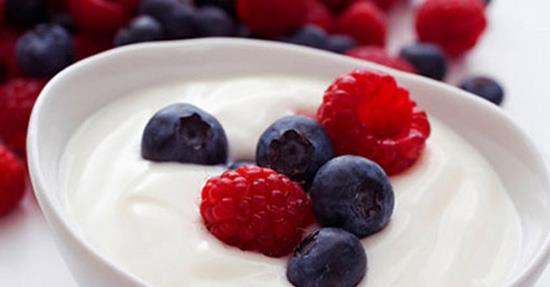According to a report by the American Academy of Pediatrics, adding two probiotics or prebiotics to the daily diet can help prevent diarrhea and intestinal diseases.

Feeding your baby yogurt also helps strengthen the digestive system
There are millions of types of bacteria that live in the human digestive system. Some types can be harmful to health such as E.coli intestinal bacteria, Staphylococci ..., some bacteria bring health benefits. These bacteria are collectively known as probiotics, they are "responsible" for protecting the body from infection and "knocking away" bad bacteria .
Probiotics are among the beneficial bacteria that help protect the body. Nowadays, more and more baby products are fortified with this beneficial bacteria. However, should there be a healthy supplement for your baby?
Probiotics are bacteria that exist in the human body, settle in the intestines and a number of other organs, including the skin. According to a study of 200 infants aged 4-10 months, babies with probiotic fortification were less likely to develop diarrhea than other babies. Another study also showed that probiotics help prevent rotavirus, the virus that causes diarrhea and vomiting.

A 2003 study of 130 infants at risk of allergies also found that the immunity to and prevention of certain types of allergies was much higher among those receiving probiotic supplements. Only 23% of 2-year-olds given probiotic supplements are at risk of developing neonatal eczema . For babies not enriched with probiotics, this number goes up to 46%.
Probiotics have also been shown to be beneficial in the treatment of irritable bowel syndrome, ulcerative colitis, and other common colic symptoms in children. However, experts are still studying and reviewing the long-term effects of probiotics on the health of babies, especially premature babies with weak immune systems.
Tell mothers about some foods that contain beneficial bacteria for children:
- Yogurt: On the market today, there are many types of yogurt enriched with probiotics, mothers can learn and use. In addition, yogurt also contains viatmin D and calcium, which are very good for your child's bone development.

Note when feeding yogurt Yogurt is rich in protein, calcium and good bacteria for baby's digestive system. It can be said that yogurt is one of the "healthiest" foods that mothers can give their children to taste first
- Cheese: Not all cheese contains probiotics, only those fermented by lactic acid have beneficial bacteria for the body.
Avocado is also one of the products fermented by lactic acid. Therefore, they also have a certain amount of beneficial bacteria. However, butter is often metamorphosed when it comes to high temperatures such as cooking, baking ...
Banana, oatmeal, honey: Although they do not contain probiotics, these foods do contain prebiotics, a good bacteria for the body. The job of prebiotics is to stimulate the activity of beneficial bacteria, against "invaders". Even so, mothers should not give honey to children under 1 year old!
>>> See more discussions with related topics:
How to properly feed yogurt?
Distinguish probiotics and digestive enzymes














